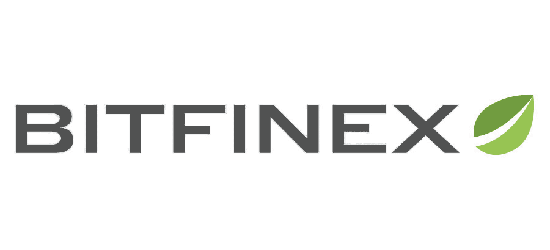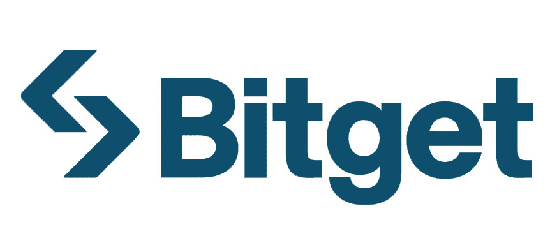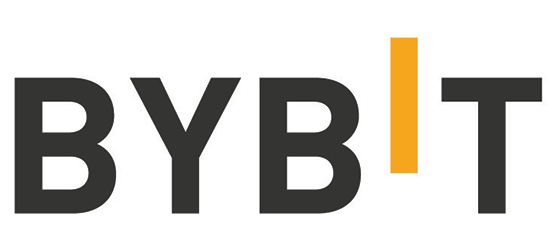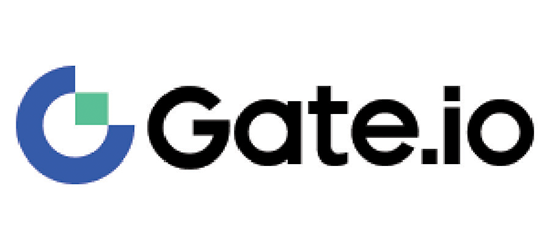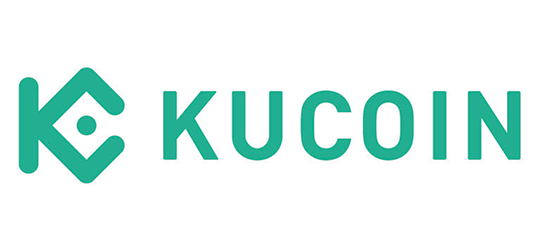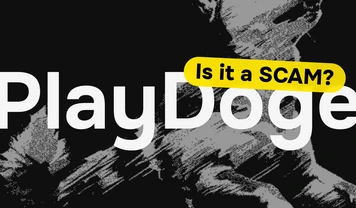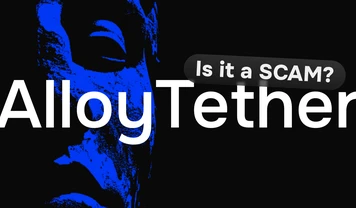
Trust Wallet vs. MetaMask: Which Wallet Should You Use?
In this article, we compare the Trust Wallet and MetaMask — two popular digital wallets for cryptocurrency storage. We cover their features, security measures, withdrawal processes, customer service support, and more.
-
Table of Contents
- Comparison: Trust Wallet vs. MetaMask Wallet
- Comparison: Key Points
- More Details about Supported Coins
- Are Trust Wallet & Metamask Centralized or Decentralized?
- Trust Wallet vs. MetaMask Fees
- Security
- Trust Wallet vs. Metamask Features
- User Experience
- Withdrawals
- Trust Wallet vs. MetaMask Customer Service
- The Verdict
- Frequently Asked Questions
Securing your digital assets is paramount in the rapidly evolving world of cryptocurrency. Two leading contenders in the field of digital wallets are Trust Wallet and MetaMask. These platforms serve as secure virtual spaces where individuals can manage their digital currencies. Trust Wallet, launched in 2017, is lauded for its wide-ranging capabilities, including support for multiple currencies, NFT operations, and the potential to earn interest on holdings. Conversely, MetaMask founded a year earlier in 2016, started as an Ethereum-only wallet but has broadened its scope to include other tokens - although it notably does not offer Bitcoin support. This article compares Trust Wallet and MetaMask, exploring their strengths and weaknesses to help you decide which wallet best suits your needs. Moreover, we'll discuss ways to keep your digital currency safe and secure, no matter which wallet you choose.
Comparison: Trust Wallet vs. MetaMask Wallet
Before we start comparing Trust Wallet and MetaMask, it is important to know about these wallets in detail.
Trust Wallet: Overview
Trust Wallet is a popular mobile cryptocurrency wallet that provides users with a secure and convenient way to store, send, receive, and manage various digital assets. It was founded by Viktor Radchenko in 2017 and gained widespread recognition due to its user-friendly interface and robust security features.
As the name suggests, Trust Wallet emphasizes trust and security as its primary priorities. It is designed to be a non-custodial wallet, meaning that users always have full control over their private keys and funds. This approach ensures that any third party does not hold the user's assets, reducing the risk of potential hacks or unauthorized access.
Source and Copyright © Trust Wallet
One of Trust Wallet's key features is its compatibility with a wide range of cryptocurrencies and tokens. It supports major cryptocurrencies like Bitcoin, Ethereum, and Binance Coin, as well as numerous ERC-20 and BEP-20 tokens, making it a versatile choice for crypto enthusiasts and investors.
Trust Wallet also provides users with access to a range of additional services. For instance, it enables them to buy and sell cryptocurrencies using a bank card, stake their coins to earn rewards, and even take advantage of the platform's Decentralized Finance (DeFi) capabilities. On top of that, Trust Wallet also allows users to interact with Non-Fungible Tokens (NFTs).
MetaMask: Overview
MetaMask is a popular cryptocurrency wallet and browser extension that allows users to interact with the Ethereum blockchain and access decentralized applications (DApps) directly from their web browsers. It was created by ConsenSys and first launched in 2016 as an Ethereum wallet. Since then, it has evolved and expanded its capabilities to support other blockchains and tokens as well.
At its core, MetaMask serves as a secure and non-custodial wallet, meaning that users retain full control over their private keys and funds. Private keys are encrypted and stored locally on the user's device, ensuring that only the user has access to their account. This decentralized approach aligns with the principles of blockchain technology, where the responsibility for safeguarding assets lies with the individual rather than a centralized entity.
Source and Copyright © MetaMask
MetaMask provides a user-friendly interface that seamlessly integrates with various Ethereum-based websites and DApps. When a user encounters a DApp that requires interaction with the blockchain, MetaMask will prompt the user to approve transactions and sign them using their private key. This process empowers users to engage in a wide range of activities, including sending and receiving Ethereum and other compatible tokens, participating in token sales (ICOs), and interacting with decentralized finance (DeFi) protocols.
Comparison: Key Points
Now that you know about the two wallets, let's take a look at how they stack up against one another. Comparison between Trust Wallet and MetaMask Wallet:
| Trust Wallet | MetaMask | |
|---|---|---|
| Platform and Compatibility | Trust Wallet is primarily a mobile cryptocurrency wallet available on both iOS and Android platforms. It is designed for seamless use on smartphones and tablets. | MetaMask is primarily a browser extension wallet that operates as an add-on for popular browsers like Google Chrome, Firefox, and Brave. It offers compatibility with desktop devices. |
| Supported Cryptocurrencies | Trust Wallet supports a wide range of cryptocurrencies and tokens, including major ones like Bitcoin, Ethereum, and ERC-20 tokens, as well as various other altcoins. | MetaMask primarily supports Ethereum and its associated ERC-20 tokens. While it may integrate with other blockchains through plugins, its core functionality revolves around Ethereum-based assets. |
| Security Features | Trust Wallet implements security measures such as PIN code protection backup passphrase. It also allows users to back up their private keys and provides hardware wallet integration. | MetaMask emphasizes the importance of securing private keys and provides users with seed phrases for wallet backup. It is also compatible with hardware wallets for enhanced security. |
More Details about Supported Coins
When it comes to supported coins, Trust Wallet and MetaMask offer different options. Let's have a look at the currencies supported by each one.
Trust Wallet-Supported Coins
Trust Wallet supports a wide array of cryptocurrencies on the Ethereum network and boasts an extensive selection of assets. It can accommodate all ERC20 tokens and thousands of other assets spanning 70 different blockchains. Additionally, Trust Wallet offers a built-in exchange feature, allowing users to swap tokens within the wallet. This versatility makes Trust Wallet a robust option for managing various digital assets, making it appealing to both experienced traders and beginners.
MetaMask Supported Coins
While MetaMask also supports multiple cryptocurrencies on the Ethereum network, its range of supported assets is more limited compared to Trust Wallet. It primarily focuses on Ethereum-based tokens. However, users can store other assets like Bitcoin using wrapped derivatives such as WBTC. Unlike Trust Wallet, MetaMask does not have a built-in exchange feature, meaning users must connect to a decentralized exchange (DeX) to swap tokens. This might require some familiarity with DeX platforms and could be less beginner-friendly compared to Trust Wallet's integrated exchange function. Nevertheless, MetaMask remains popular among Ethereum users due to its user-friendly interface and reliable security features.
Are Trust Wallet & Metamask Centralized or Decentralized?
Trust Wallet and MetaMask are both non-custodial wallets, which means that they operate on a decentralized platform and do not store users' private keys or funds. Instead, the responsibility for securing and managing assets falls solely on the user. This structure provides an extra layer of security since the user can completely control their wallet and access it without relying on a third-party or centralized entity. This decentralized approach aligns with the core values of blockchain technology, ensuring that users are in full control over their funds and information at all times. Trust Wallet and MetaMask have implemented stringent security measures to ensure maximum user data and asset protection. These include features such as PIN code protection, biometric authentication, and hardware wallet integration for added security.
Furthermore, both wallets provide users with a 12-word backup passphrase as an extra measure of protection. This ensures that users can access their funds even if they lose their password or device. In a nutshell, both Trust Wallet and MetaMask are decentralized wallets, empowering users to manage their assets without reliance on any central authority.
Trust Wallet vs. MetaMask Fees
When it comes to fees, both Trust Wallet and MetaMask offer competitive rates. There are five types of fee structures that each wallet employs for different tasks, such as:
Download & Storage Fees
There are no download or storage fees to pay when using either Trust Wallet or MetaMask. This is the case with all of the best hot wallets in the market, making them cost-effective solutions for managing digital assets.
Transaction Fees
Both Trust Wallet and MetaMask charge fees when users send cryptocurrencies from their wallets. However, this is based on the current blockchain mining fee. As such, neither wallet makes any money from GAS fees.
Note: The fee is paid by the sender, not by the receiver.
Staking Fees
Trust Wallet does not charge any fees for staking rewards. This makes it a great option for those looking to earn passive income through their digital assets. On the other hand, MetaMask does not explicitly state whether it charges staking fees. It is worth noting that its staking feature is provided by third-party providers such as Lido and Rocket Pool, who take a 14% and 10% cut from any staking rewards generated.
Tip: You can calculate the staking fee by using Trust Wallet's online calculator (Calculator)
Token Swap Fees
MetaMask allows users to swap tokens without leaving its wallet. This is charged at a markup of 0.875% on top of the rate it is able to secure. This can be advantageous for users who wish to swap tokens without navigating a website or app. On the other hand, Trust Wallet does not charge any fees on token swaps. However, users should still check what exchange rates are offered before confirming, as external pools are used to secure yields.
Fiat Payment Fees
Finally, both Trust Wallet and MetaMask make money through fiat payments. Trust Wallet uses Simplex, which charges between 3.5-5% on fiat payments with a minimum of $10. Meanwhile, MetaMask uses a combination of payment providers such as MoonPay, Mercuryo, Transak, and Sardine when processing fiat purchases. This can be anywhere in the region of 3-5%, depending on the user's location, currency, and payment type.
Security
Trust Wallet and MetaMask both offer security features that protect users' accounts, funds, and private information. Trust Wallet employs stringent security measures such as biometric authentication, PIN code protection, encrypted storage, and a 12-word seed phrase for backup. It also does not collect any personal information from its users and does not sell this data to outside sources.
MetaMask is also secure and private. It boasts features such as phishing protection, secure login, encrypted storage, and anonymous IP address. Furthermore, it does not collect any personal information or share data with third parties for profit. Therefore users can rest easy knowing that their funds and data are well-protected when using either Trust Wallet or MetaMask. While both wallets are secure and private, users should still exercise caution when using any online wallet. This includes not sharing your seed phrase or password with anyone and regularly updating the wallet's software. Users can ensure that their accounts remain safe from theft or hacks by following simple steps.
Trust Wallet vs. Metamask Features
Trust Wallet and MetaMask both offer a wide range of features for users, such as:
Web 3.0 dApps
Both wallets allow users to access Web 3.0 dApps right from the wallet interface, enabling them to easily use decentralized applications. This includes games, trading platforms, and other digital services built on blockchain technology. Moreover, users can manage their assets within the app, as well as view transactions and staking rewards.
Token Swaps
Both Trust Wallet and MetaMask allow users to swap tokens without navigating a website or app. Users can choose from a variety of tokens, with Trust Wallet supporting the widest selection. Token swaps are also free on Trust Wallet, whereas MetaMask charges a swap fee of 0.875%. In addition, Trust Wallet also supports cross-chain swaps, allowing users to swap tokens from different blockchains.
Staking
Trust Wallet and MetaMask offer staking services allowing users to earn passive income through their digital assets. This requires users to deposit funds into a pool and receive rewards when the stake matures. Trust Wallet supports a wide range of staking coins, offering yields up to 19.6%. MetaMask only supports Ethereum staking, with two pools – Lido and Rocket Pool – providing a maximum yield of 3.96%. Furthermore, MetaMask's pools take a 14% and 10% cut from any staking rewards generated, whereas Trust Wallet does not charge any fees for staking.
Debit/Credit Card Payments
Both Trust Wallet and MetaMask support debit/credit card payments, enabling users to buy cryptocurrencies from the wallet. This is a convenient option for those who wish to purchase digital assets without navigating a website or app. The payment process works as follows: once matched with a payment provider, all fees are displayed, and users can complete their purchase via debit/credit card. Fees range from 3-5%, depending on the payment type and currency.
User Experience
User Experience (UX) is a crucial aspect of any digital wallet, and when it comes to Trust Wallet and MetaMask, both platforms excel in providing seamless and secure experiences for their users.
Trust Wallet, a popular mobile wallet, boasts an intuitive and user-friendly interface. Its simple design allows users to navigate easily through various features, including managing multiple cryptocurrencies, accessing decentralized applications (DApps), and interacting with decentralized finance (DeFi) protocols. Trust Wallet emphasizes user security, as it never stores private keys on its servers, putting the user in full control of their funds.
On the other hand, MetaMask, a browser extension wallet, offers a smooth UX for interacting with Ethereum and its ecosystem. It seamlessly integrates into web browsers, making it convenient for users to transact and interact with DApps directly from their browsers. MetaMask's user interface is also straightforward, making it easy for newcomers to understand and use without feeling overwhelmed.
Both Trust Wallet and MetaMask prioritize security by employing strong encryption techniques, ensuring users can confidently manage their digital assets. They both support various blockchain networks, enabling users to access a wide range of cryptocurrencies and DApps. Regular updates and community-driven development also contribute to continuously improving the user experience.
Withdrawals
Withdrawing cryptocurrencies from Trust Wallet and MetaMask is a straightforward process, and the steps are almost identical for both wallet providers:
- Open either Trust Wallet or MetaMask and select the desired cryptocurrency from your wallet. Ensure that the correct network (e.g., Ethereum mainnet, Binance Smart Chain) is chosen to match the cryptocurrency you wish to withdraw.
- Once you've selected the cryptocurrency and network, find and click on the 'Send' or 'Send/Transfer' button within the wallet interface.
- Enter the amount of tokens you want to transfer. Double-check the amount to avoid mistakes, as cryptocurrency transactions are irreversible.
- Review the GAS fee associated with the transaction. GAS is the fee required to process the transaction on the blockchain. Confirm that the fee is acceptable to you.
- After confirming the transaction details, proceed to send the tokens. As long as your wallet contains enough GAS to cover the transaction fee, the transfer will instantly be sent to the blockchain.
Note: Keep in mind that blockchain transactions are irreversible, so always verify the recipient's address and the transaction details before proceeding.
Trust Wallet vs. MetaMask Customer Service
In terms of customer service, MetaMask offers a greater level of assistance than Trust Wallet. When users encounter an issue, they can reach out to the MetaMask support team via their live chat feature. This is available 24/7 and provides quick resolution to any queries or problems.
Trust Wallet does not provide a direct line for customers but instead has a support form. This requires users to submit their query and wait for a response, which can take hours or days, depending on how many inquiries need to be handled. Trust Wallet has a distinct advantage over MetaMask thanks to its active presence on social media platforms such as Facebook, Instagram, Twitter, etc.
The Verdict
Trust Wallet and MetaMask are two of the most popular digital wallets available today. While Trust Wallet offers a wide range of services such as token swaps, staking, debit/credit card payments, and social media support, MetaMask stands out for its 24/7 live chat feature, seamless integration into web browsers, and support for Ethereum staking. Ultimately, users should decide which wallet is best for them by considering their own needs and preferences. For instance, those prioritizing customer service support should opt for MetaMask, while those needing to access multiple cryptocurrencies and DApps may prefer Trust Wallet. Ultimately, both wallets are secure and offer great user experiences.
Frequently Asked Questions
Which is better: Trust Wallet or MetaMask?
It depends on the user's needs and preferences. Trust Wallet is a great option for those who need to access multiple cryptocurrencies and DApps. At the same time, MetaMask stands out for its 24/7 live chat feature, seamless integration into web browsers, and support for Ethereum staking.
Is MetaMask the best wallet?
MetaMask is a popular digital wallet that offers great user experiences and customer service support. However, it may not be the best option for everyone, as different wallets cater to different needs. But if you want to use Ethereum, MetaMask is a great choice as it offers seamless integration into web browsers and supports Ethereum staking.
Can you use MetaMask with a Trust Wallet?
No, Trust Wallet and MetaMask are two separate digital wallets. While both provide secure ways to store cryptocurrency, they do not support each other's networks. Therefore, you cannot use MetaMask with a Trust Wallet. However, using their respective interfaces, you can transfer cryptocurrencies from one wallet to the other. If you install both wallets on the same device, it can cause issues with connecting to dApps. It is recommended to use either one or the other.




